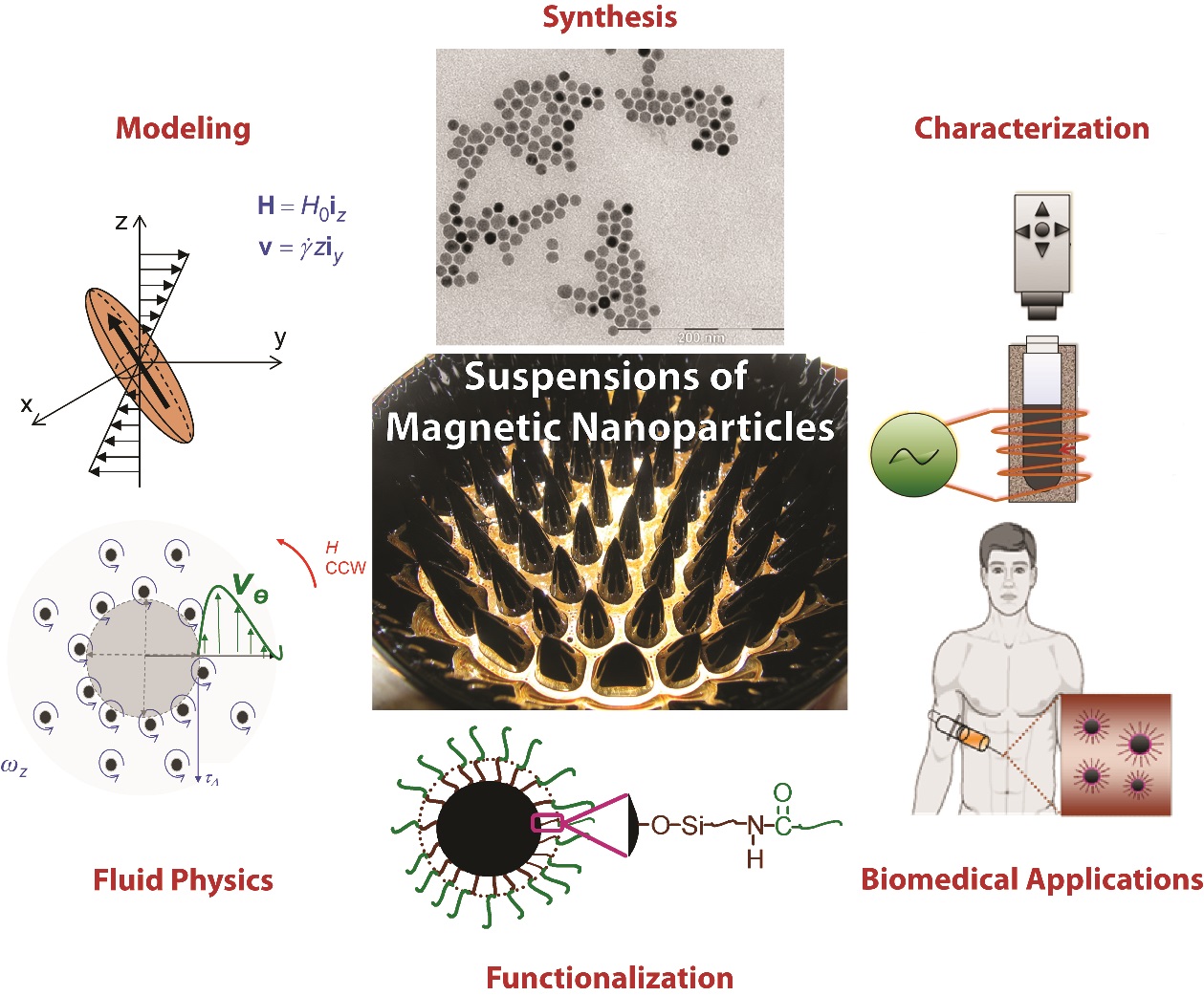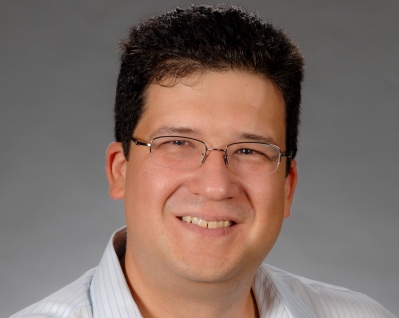Please help me congratulate Professor Carlos Rinaldi, who was selected to receive the International Journal of Nanomedicine Early Career Award. This annual award is presented to a scientist in the early stage of his/her career (less than 10 years after receiving Ph.D.) who has made significant contributions to the field of nanomedicine. According to the selection committee for the award, “This year was the most competitive year ever which literally required months of deliberations.” Professor Rinaldi will receive his award at the 1st Annual International Translational Nanomedicine (ITNano) Conference at Northeastern University in Boston, July 26 – 28, where he will also give a research presentation.
Professor Rinaldi obtained his PhD in Chemical Engineering in 2002 from MIT. His dissertation work developed asymptotic solutions for the flow of suspensions of magnetic nanoparticles, so-called ferrofluids, in applied magnetic fields. After a brief tenure as an Assistant Station Director in the Japan station of the MIT Practice School in summer of 2002, Dr. Rinaldi joined the Chemical Engineering Department at the University of Puerto Rico, Mayagüez in the Fall of 2002 and in 2012 moved to the J. Crayton Pruitt Family Department of Biomedical Engineering and the Department of Chemical Engineering at the University of Florida.
Professor Rinaldi has made significant contributions to bionanomedicine by advancing biomedical applications of magnetic nanoparticles, specifically cancer treatment through magnetic fluid hyperthermia. In this novel form of treatment, magnetic nanoparticles subjected to high frequency and moderate amplitude magnetic fields dissipate energy locally and result in cancer cell death. Dr. Rinaldi’s group has developed methods for producing controlled aggregates and singly dispersed nanoparticles coated with covalently linked coronas of polysaccharides (e.g., dextran and chitosan) and biocompatible polymers (e.g., polyethyelene glycol). The resulting nanoparticles are ultra-stable in cell culture media and physiological conditions, making them ideally suited for biomedical applications. Experiments have shown that hyperthermia induced by magnetic nanoparticles is much more effective than traditional forms of hyperthermia in destroying cancer cells and has enhanced synergy with anti-cancer drugs. Most recently, Professor Rinaldi’s group has demonstrated that receptor targeted magnetic nanoparticles internalized in cancer cells can result in significant reductions in cell viability in an alternating magnetic field, without a perceptible temperature rise. This demonstration challenges the paradigm that for magnetic nanoparticles to be effective in killing cancer cells they must release sufficient heat to raise the tissue temperature to the hyperthermia range. Professor Rinaldi’s demonstration that targeted particles are effective without the need of raising the bulk temperature is important as it opens the door to application of magnetic fluid hyperthermia in small tumors and metastatic lesions where raising the tissue temperature is difficult.
Congratulations Professor Rinaldi for this prestigious honor!

Graphical summary of the work done in Dr. Rinaldi’s lab, which focuses on magnetic nano particle suspensions and spans their theoretical description, fluid mechanics, synthesis, functionalization, and characterization, and development of their biomedical applications.
